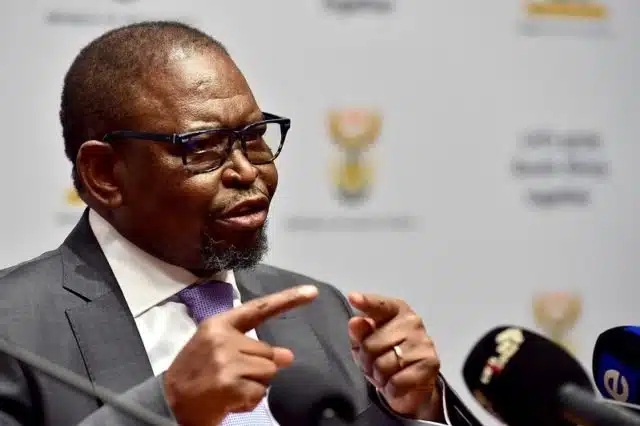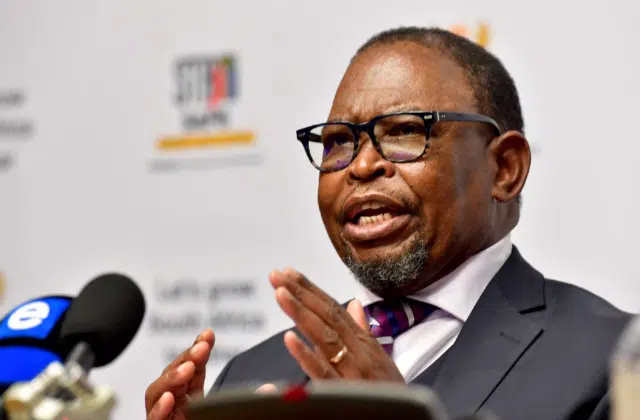
Finance minister sends unrest warning to South Africa
Finance minister Enoch Godongwana has warned that deteriorating service delivery at the municipal level is likely to lead to more instability and protest action in South Africa.
Speaking at an investment conference in the Eastern Cape on Thursday (14 July), Godongwana pointed to the violence that occurred in July 2021 in KwaZulu Natal and in Gauteng which lead to the deaths of 350 people.
“While much of the rioting was undoubtedly driven by criminal elements, it found fertile ground in the desperate economic situation faced by many of our people.
“The truth is, despite the powerful democratic movement that toppled apartheid and gave birth to progressive legislation, and a constitutional framework that foregrounds socioeconomic rights, poverty and inequality in recent years have deepened,” he said.
“This reversal is perhaps most evident in the state of our municipalities.”
Godongwana pointed to ‘regular protests’ where people pour out into the streets to demand basic services and opportunities to claim a better life for themselves and their children.
“You see it in factories, plants and small businesses closing shop and retrenching workers, because they cannot rely on the timely provision of electricity and water.”
“You see it in roads falling into disrepair because councils have misspent their budgets and lack the technical skills to maintain critical infrastructure. You see it in the crumbling of the rule of law and in falling standards of quality of life, as police stations are understaffed and under-resourced, while hospitals that cannot afford to hire nurses and doctors are stretched to breaking point.”
Financial breakdown
Godongwana also pointed to the deterioration of South Africa’s municipalities at an administrative and financial level as a cause for concern.
Key to many of these breakdowns in the municipal sphere, and the failure to deliver on the most basic of services, has been the inability to spend scarce financial resources in a sound and responsible fashion, he said.
He pointed to the latest state of a local government report which shows that of South Africa’s 278 municipalities, 175 are in financial distress.
“About a decade ago, in 2010/2011, the number stood at only 66 municipalities. That means that municipalities in financial distress have (almost) tripled. In addition, there are 43 municipalities facing financial and service delivery crisis. There are also 112 municipalities who have adopted budgets this year which they cannot fund,” he said.
“Probing by the National Treasury has identified unfunded budgets as the primary catalyst for financial distress. More than 150 municipalities are bankrupt or insolvent. They are unable to pay creditors, or even to service pensions.
“Many of these municipalities have insufficient funding to invest in the maintenance and upgrades of the local infrastructure required to ensure service delivery. Over a quarter of them, according to the auditor general, are at significant risk of not being able to continue operating as going concerns.”
The situation is getting worse
Godongwana noted that this situation has worsened in the last five years, and it is ‘no coincidence’ that this deepening of municipal crisis coincides with the dramatic slowdown of economic growth nationally.
“There is also, sadly, a growing lack of political will to adhere to both the letter and principle of the fiscal architecture that governs local financial management and promotes transparency and rationality.
“The power of the office is too often exercised without care and probity. The fact that many municipalities fail to implement their credit control policies has perpetuated a culture of non-payment,” he said.
Read: Countries losing trust in the South African passport: minister



